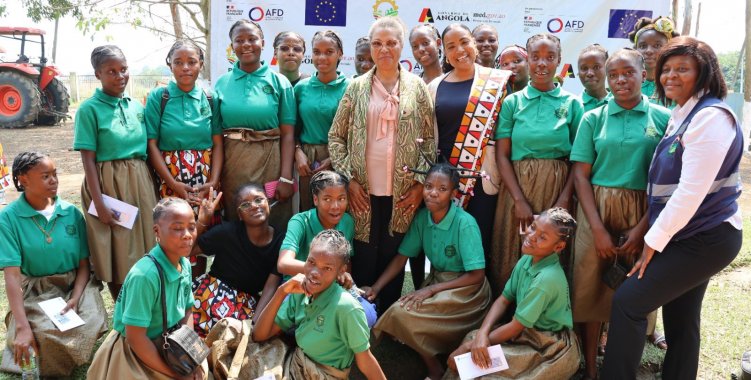These incentives are part of the Financial Incentive Program for Girls in Agricultural Technical Institutes, within the scope of PAFAR, which was launched this Wednesday in a ceremony presided over by the Minister of Education, Luísa Grilo.
"The financial incentives aim to benefit 815 girls enrolled in agricultural technical institutes, with 30 thousand kwanzas per month, throughout the entire training cycle, through bank transfers", informs the Ministry of Education, in a statement to which VerAngola had access.
In this sense, more than 40 students of the Agricultural Technical Institute of Cuanza Norte have already started to benefit from these scholarships this Wednesday.
"Forty-four 10th grade students from the Cuanza Norte Agricultural Technical Institute began today [Wednesday] to benefit from scholarships worth 30,000 kwanzas per month, paid quarterly, granted under the Agricultural and Rural Training Support Project (PAFAR)," reads a statement from the government of the province of Cuanza Norte, to which VerAngola had access.
The newly launched program aims to "encourage girls in rural areas to remain in school and achieve academic success."
"The project is funded by the European Union, through the French Development Agency, in partnership with the Angolan government, and aims to support students from Agricultural Technical Institutes throughout the country," the statement also says.
According to the governor of Cuanza Norte, João Diogo Gaspar, this "support represents more than a financial benefit, it is an investment in the future of young women and in the development of modern and sustainable agriculture."
"It also represents a concrete step towards ensuring that young women from rural areas can dream of a technical career and actively contribute to the development of modern and sustainable agriculture in our country", she added, as quoted in the note.
The Minister of Education highlighted the "importance of promoting equal opportunities in education and called for the proper use of the allocated resources".
Luísa Grilo also spoke about the shortage of teachers, stating that in Angola more than 60 thousand teachers are needed to meet the current needs of the education system.
Quoted by Angop, the Minister of Education explained that this demand is demonstrated by the increase in new educational institutions and the need to replace teachers who have left their posts or retired.
Among other aspects, she mentioned that they are working to overcome the deficiencies detected in the sector she manages: "We are working to correct the student/teacher ratio, with the admission of new teachers and the construction of new classrooms, to relieve the excess of students per class".







